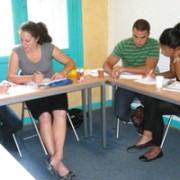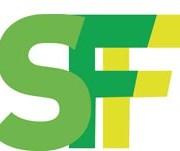Win a TEFL Course in London or Bogota!
Would you like to win a TEFL course in one of two fantastic worldwide locations?
Cactus TEFL is bringing back our popular Suzanne Furstner Scholarship in January 2016, and this time we are excited to be giving away not one, but two TEFL courses!
Become a qualified English teacher in the vibrant heart of London, or jet off to Colombia’s historic capital to gain your prestigious CELTA qualification – the choice is yours. These are two of the best teacher training courses available and will equip you with the skills and confidence you need to launch a career teaching English.
Scholarship Prizes:
4-week Trinity CertTESOL course in London, UK
4-week Cambridge CELTA course in Bogota, Colombia
Win a TEFL Course – How to Apply:
- Create a video of 3 minutes maximum on the subject: ‘Why I want to become a teacher’
- The video can be as creative as you choose, as long as it is relevant to the subject
- Videos should be posted on YouTube with the following hashtags in the Comments box: #cactustefl #winacourse
- Check ‘Also share on Google+’ below the Comments box
- If you prefer to keep your video private, there is an option to select ‘Private’ in the Privacy Settings
- The link to the video should be sent to info@cactustefl.com with the subject line ‘Suzanne Furstner Scholarship Entry 2016: [your name]’
- Please specify your preferred course location (London or Bogota)
- Dates for entry 1st January – 31st March 2016
Winners’ Criteria:
- The course prizes must be taken in September, October or November 2016
- The winning videos will be published on the Cactus TEFL website, Cactus blog and social media channels
- The winners will be required to create a video diary of their course to be published by Cactus.
Suzanne Furstner Scholarship
An annual scholarship that gives aspiring teachers from all the world the chance to win a TEFL course, the Suzanne Furstner Scholarship was set up in 2006 in memory of our much-loved colleague Suzanne. To date, we have sent winners to take CELTA and CertTESOL courses in locations ranging from Spain and Italy to San Franciso and Playa del Carmen.
Remember, entries are accepted from 1st January 2016, so you have plenty of time to start thinking and make your dreams come true in 2016!










